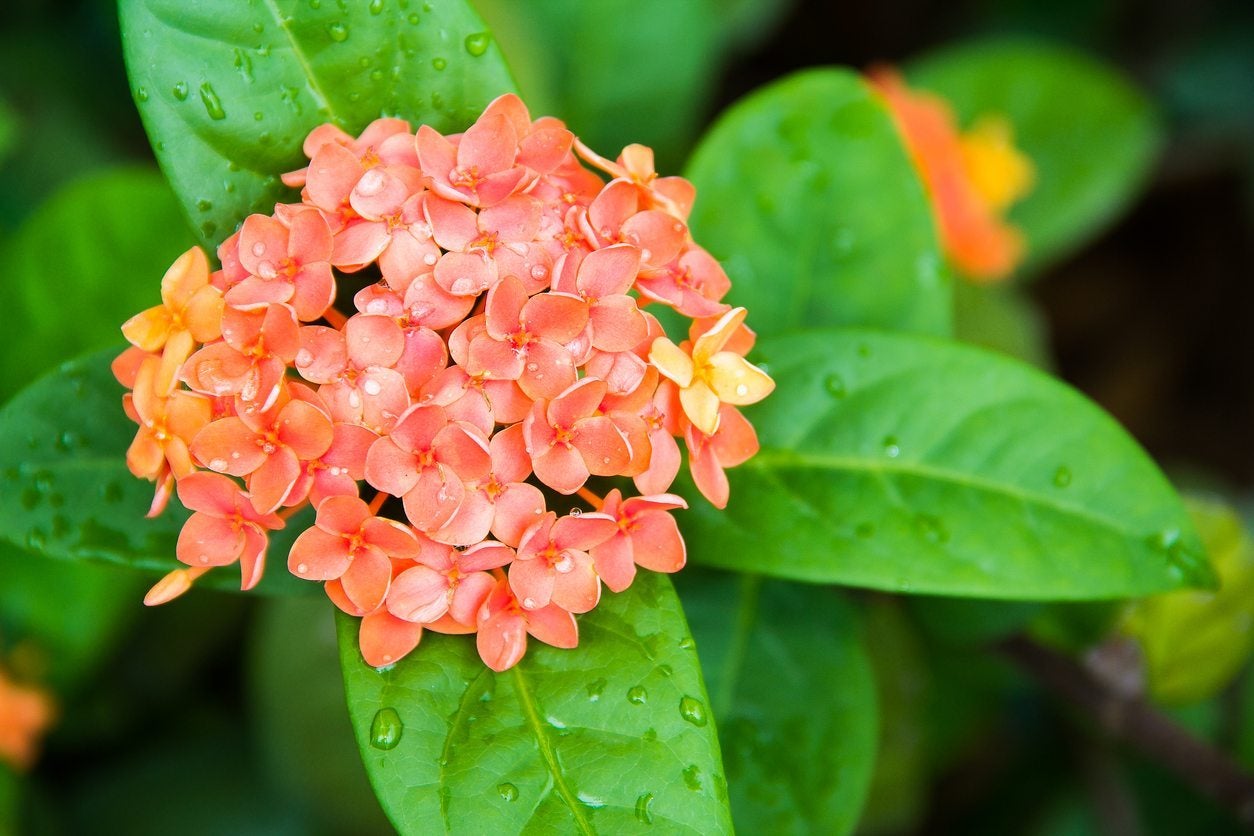How To Get Ixora Flowers: Methods For Getting Ixoras To Bloom


Sign up for the Gardening Know How newsletter today and receive a free copy of our e-book "How to Grow Delicious Tomatoes".
You are now subscribed
Your newsletter sign-up was successful
One of the common landscape beauties in southern regions is Ixora, which prefers well-draining, slightly acidic soil and plenty of adequate nutrients. The bush produces copious orange-pink blooms when it has adequate nutrients and moisture. Getting Ixoras to bloom may require annual feeding but, once established, they bloom profusely even on pruned hedges. Read on for some Ixora blooming tips to help your plant perform its best.
How to Get Ixora Flowers on Pruned Plants
Ixora is an evergreen bush that is excellent when used as a hedge, in a large container, or as a stand-alone specimen. Many forms produce white or yellow blooms, but the bright pink-orange cultivars are the most common. If you have bushes in nutrient poor or alkaline soil, you may wonder, "Why won't my Ixora plants bloom." Fertilizer may be the answer, but it could also be poor siting or soil pH. Ixora that are sheared annually may have their emerging flower buds nipped off, preventing bloom. The flower buds form at the tips of the stems, which means constant pruning may simply be removing the buds. If you want your plant in a certain habit, shear in very early spring just as the plant is sending out new growth. Annual pruning is recommended to keep the plant producing flowers, but care should be taken to only remove a small portion of tip growth. Getting Ixoras to bloom after heavy shearing is an exercise in futility if pruning is done well into spring. You will just have to wait until next year for new flower buds to form.
Ixora Blooming Tips
In low light situations, Ixora bud formation will be reduced. Situate the plant in full sun where it will receive at least six hours of solar energy per day. A more common reason for diminished blooms is the soil pH. Ixora thrive in a pH of 5, a fairly acidic situation, which will require fertilizing management. At planting, mix in 1/3 organic matter such as compost, well-rotted manure, or peat moss. Organic matter will help lower soil pH. Proper soil pH may be the answer on how to get Ixora flowers. Good drainage is also essential. The organic matter will increase porosity at the site, while adding nutrients as it gradually rots into the soil. Encouraging Ixora flowers by amending the soil is a good first step. Compost can be added as well as a top dressing but keep it away from the trunk to prevent rot. Iron and manganese are common Ixora deficiencies in alkaline soil. If the area wasn't amended prior to planting, fertilizing will become mandatory. Leaf yellowing will be the first sign the soil is alkaline, followed by lessening buds. Chelated iron and manganese may improve these symptoms. In alkaline soils, however, it may be necessary to use a foliar feed which the plant can use more readily. Encouraging Ixora flowers with a liquid micro-nutrient spray can improve budding and flower formation. As with any product, follow the manufacturer's mixing and application instructions. For foliar sprays, it is best to apply the product when direct sun is not hitting the leaves but early in the day so the spray can dry on leaves. After fertilizing, water the root zone deeply.
Sign up for the Gardening Know How newsletter today and receive a free copy of our e-book "How to Grow Delicious Tomatoes".

Bonnie Grant is a professional landscaper with a Certification in Urban Gardening. She has been gardening and writing for 15 years. A former professional chef, she has a passion for edible landscaping.